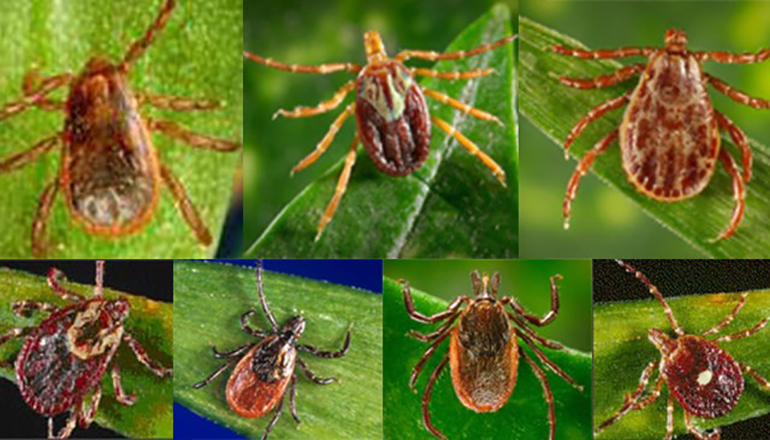With warmer weather on the way, the Missouri Department of Health & Senior Services wants to remind people living in and visiting the state to take precautions against tick bites. Ticks can transmit serious, potentially deadly, illnesses and they can be active anytime the ground isn’t frozen.
“As spring arrives, we are reminded what a beautiful state Missouri is and for those of us who enjoy the outdoors, it creates more opportunities to be outdoors exercising and enjoying the state’s natural beauty,” said DHSS Director Dr. Randall Williams. “For those of us in public health, this time of year serves as a transition from flu season to prime time for diseases carried by ticks.”
Missouri is home to a variety of tick species, meaning we experience a variety of tick-borne illnesses. In 2017, Missouri reported 634 cases of Rocky Mountain spotted fever and 334 cases of ehrlichiosis. 60 percent of cases in the U.S. of Rocky Mountain spotted fever are in five states and Missouri is one of them. At least six different types of human tick-borne diseases have been reported in Missouri, including Rocky Mountain spotted fever, ehrlichiosis, tularemia, Lyme or Lyme-like disease, Heartland Virus and Bourbon Virus. Many of these illnesses can be effectively treated if they are caught early, however, on occasion they can be deadly. That is why it is so important to practice prevention by using DEET or insect repellent and checking for ticks any time you go outdoors.
Ticks can be found throughout Missouri, primarily in wooded and brushy areas, tall grasses and close to the ground. Despite the presence of ticks, everyone can safely enjoy the outdoors by taking a few safety precautions.
“We encourage everyone to use precautions such as insect repellent and careful body checks after being outdoors to prevent these diseases whenever and wherever you are in Missouri,” said Williams. “While the incidence of these diseases is low throughout Missouri, the severity of illness can be high in some patients. So as always, prevention remains our best advice.”
DHSS recommends the following precautions to prevent tick bites:
- Use an insect repellent with a minimum of 20% DEET, picaridin or IR3535 on exposed skin for protection that lasts several hours whenever you spend time outdoors. DEET products should not be used on infants under two months of age.
- When possible, wear protective clothing (light-colored, long-sleeved shirts and pants) when outdoors to keep ticks off the skin.
- Avoid tick-infested areas including brushy areas, tall grasses, woodpiles and leaf litter. When hiking, stay near the center of trails to avoid ticks.
- Reduce ticks around your home by keeping lawns mowed short, shrubs and trees trimmed, and remove leaf litter, woodpiles, fallen branches, trash and debris from yards.
- People with pets should talk with their veterinarian about the use of tick prevention treatments. You should regularly check your pet for ticks.
- Check for ticks while outdoors and again after returning from the outdoors. If possible you should change clothes and shower soon after spending time outdoors.
Preventing tick bites is the best way to avoid getting sick from any number of disease that ticks can carry. Just one bite from a tick can lead to serious illness. If you find an attached tick, don’t panic. The tick should be removed promptly. The longer it is attached the greater the risk of infection. To remove ticks:
- Using tweezers, grasp tick near its mouth and as close to your skin as possible.
- Pull tick firmly, straight out, away from the skin. Do not jerk or twist the tick.
- Do NOT use alcohol, matches, liquid soap or petroleum jelly to remove a tick.
- Wash your hands and the bite site with soap and water after the tick is removed. Apply an antiseptic to the bite site.
Everyone should be aware of the signs and symptoms of tick-borne disease, which can vary among individuals and differ according to the disease. In general, a sudden high fever, severe headache, muscle or joint aches, nausea, vomiting or diarrhea can be signs of tick-borne disease. You should consult your health care provider if experiencing these symptoms. If these symptoms occur following a tick bite, or even after exposure to a tick habitat, be sure to tell your healthcare provider. Another possible sign of tick-borne disease is a rash or pus-filled wound that appears at the site of a tick bite, or a spreading rash that follows a tick bite or exposure to tick habitat.






